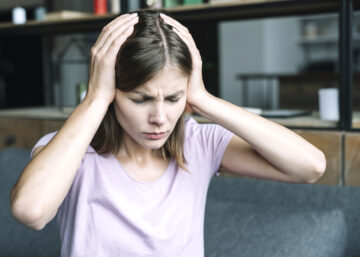
Depression is a mental illness that can affect anyone, regardless of age, race, or gender. It is characterized by sadness, emptiness, and hopelessness that can last for weeks or months at a time. Depression can make it difficult to function in everyday life and can often be accompanied by suicidal thoughts. While depression has many possible causes, there is growing evidence that suggests social media may be one of them.
Social media can be addictive and lead to compulsive behavior.
It’s no secret that social media can be addictive. For many of us, checking our Facebook or Twitter feeds has become an automatic part of our daily routine, almost like brushing our teeth or making coffee. And just like any other addiction, social media can lead to compulsive behaviors that can take over our lives. Symptoms of social media addiction include:
• Feeling anxious or depressed when you’re not able to check your feeds.
• Spending excessive amounts of time on social media sites.
• Neglecting real-world relationships in favor of online ones.
If you think you might be addicted to social media, there are a few things you can do to break the cycle:
1. Try to limit your use of social media to a specific amount of time each day.
2. Make a conscious effort to engage in face-to-face interactions with friends and family.
3. Find another hobby or activity that you enjoy and make time for it in your schedule.
By taking these steps, you can begin to break social media’s hold on your life.
It can trigger feelings of envy and inadequacy in people who compare their lives to others online.
Social media has become a central part of many people’s lives in recent years. While it can be a great way to stay connected with friends and family, it can also have some adverse effects. One of the biggest dangers of social media is that it can trigger feelings of envy and inadequacy in people who compare their lives to others online. When we see our friends and acquaintances living seemingly perfect lives, it’s only natural to feel jealous. However, these feelings can quickly spiral out of control, leading to depression, anxiety, and other mental health problems. The best way to avoid these negative effects is to remember that what we see on social media is often just a highlight reel. Everyone has struggles and challenges, regardless of how perfect their life may seem online. so try not to compare your real life to someone else’s “best” life.
It can be a source of stress for people who are constantly bombarded with news and updates.
In the age of social media, it’s easy to feel like we’re always connected to the rest of the world. Whether scrolling through our feeds or checking our email, there’s always something new to see. For some people, this constant stream of information can be a source of stress. Constantly being bombarded with news and updates can make it difficult to focus on the present moment. It can also lead to clutter in our minds as we try to keep track of all the different things that are going on in the world. If you feel overwhelmed by the constant flow of information, there are steps you can take to reduce your exposure. Unsubscribe from emails that you don’t read limit your time on social media, and try to focus on the things that are most important to you. By taking some time for yourself, you can help reduce the amount of stress in your life.
It can isolate people from real-world relationships.
When people are lonely, they can often turn to social media to connect with others. While this can be a positive way to meet new people or stay in touch with old friends, it can also harm relationships. Social media can create a false sense of connection, leading people to believe that they are more connected than they actually are. Additionally, social media can lead to envy and comparison, as people compare their own lives to the edited and filtered posts of others. Finally, social media can be addictive, causing people to spend less time interacting with the real world and more time staring at a screen. While social media has its benefits, it’s important not to forget the importance of real-world relationships.
It can be a breeding ground for cyberbullying.
Social media has become an integral part of our lives, providing a convenient way to stay in touch with friends and family. However, it can also be a breeding ground for cyberbullying. Because people can remain anonymous online, they may feel emboldened to say things that they wouldn’t dream of saying in person. Cyberbullies may target individuals or groups, and their methods can range from sending hurtful messages to posting humiliating photos or videos. The effects of cyberbullying can be devastating, leading to feelings of isolation, anxiety, and depression. In extreme cases, it has even been linked to suicide. Given the potentially harmful consequences of cyberbullying, it’s important to be aware of the signs that it may be happening and to take action if you or someone you know is being targeted.
While social media has many benefits, it’s important to be aware of the potential downside. Addiction, envy, stress, isolation, and cyberbullying are all risks associated with social media use. If you find yourself experiencing any of these adverse effects, it might be time to take a break from your online activity. Remember that relationships in the real world are more important than those you have online.


